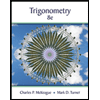5. Using the least squares approximation, the best fit an exponential curve yea(x-b) to the given data: (2, 7), (3, 17), (5, 49), (6, 71), defined by the form a) Y = Cx² + Bx + A b) Y = Bx + A c) Y = Cx² + A d) None of the above
5. Using the least squares approximation, the best fit an exponential curve yea(x-b) to the given data: (2, 7), (3, 17), (5, 49), (6, 71), defined by the form a) Y = Cx² + Bx + A b) Y = Bx + A c) Y = Cx² + A d) None of the above
Linear Algebra: A Modern Introduction
4th Edition
ISBN:9781285463247
Author:David Poole
Publisher:David Poole
Chapter7: Distance And Approximation
Section7.3: Least Squares Approximation
Problem 34EQ
Related questions
Question

Transcribed Image Text:5. Using the least squares approximation, the best fit an exponential curve y = ea(x-b)
to the given data: (2, 7), (3, 17), (5, 49), (6, 71), defined by the form
a) Y =
Cx² + Bx + A
b) Y = Bx + A
c) Y =
Cx² + A
d) None of the above
O
a
Ob
O
O d
Expert Solution
This question has been solved!
Explore an expertly crafted, step-by-step solution for a thorough understanding of key concepts.
Step by step
Solved in 2 steps with 1 images

Recommended textbooks for you

Linear Algebra: A Modern Introduction
Algebra
ISBN:
9781285463247
Author:
David Poole
Publisher:
Cengage Learning

Algebra & Trigonometry with Analytic Geometry
Algebra
ISBN:
9781133382119
Author:
Swokowski
Publisher:
Cengage

Trigonometry (MindTap Course List)
Trigonometry
ISBN:
9781305652224
Author:
Charles P. McKeague, Mark D. Turner
Publisher:
Cengage Learning

Linear Algebra: A Modern Introduction
Algebra
ISBN:
9781285463247
Author:
David Poole
Publisher:
Cengage Learning

Algebra & Trigonometry with Analytic Geometry
Algebra
ISBN:
9781133382119
Author:
Swokowski
Publisher:
Cengage

Trigonometry (MindTap Course List)
Trigonometry
ISBN:
9781305652224
Author:
Charles P. McKeague, Mark D. Turner
Publisher:
Cengage Learning